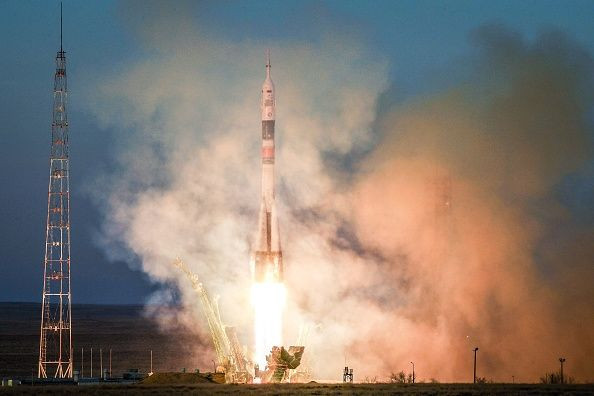Putin Could Weaponize Space With Russia’s New Hypersonic Space Drone

Russia wants to send people to the Moon as part of its lunar bid, but its new hypersonic space drone could do more than just carry out space exploration. The drone appears to be the country's first attempt at uncrewed spaceflight, but some also view it as a step toward weaponizing space.
The race for space weapons has been in more recent discussions following the release of the U.S. Missile Defense Review. In response, President Vladimir Putin made it clear that Russia will beef up its military arsenal because of the possible foray of the United States into the deployment of space weapons.
Following Putin's announcement, Russian News agency RIA Novosti reported the development of an automated shuttle. Russia’s national space agency, Roscosmos, is now in the advanced stages of developing the spacecraft. The new space shuttle follows a similar concept as the Boeing X-37, the reusable uncrewed spaceplane that the U.S. first subjected to aerodynamic testing in 2010.
It hasn’t been that long since the U.S. Defense Department said it would investigate the use of space weapons to anticipate and fight against enemy missiles from their launch pads. The Russian Foreign Ministry argued against such initiative.
"We once again call on Washington to show prudence and abandon such irresponsible adventures that would have extremely negative consequences for the entire international community and for the United States itself," the Russian Foreign Ministry said in a statement.
Nonetheless, the recent news shows Russia's unwavering efforts to produce space weapons. The proposed winged rocket will feature autonomous technology that’s capable of carrying payloads into space. The drone should have a lifespan of 50 missions, according to the International Scientific Optical Network (ISON).
Additionally, the space drone may be able to fly "seven times the speed of sound at 160km height" or even up to a maximum of 500 km height. General director Yuri Bakhvalov confirmed to RIA Novosti that the drone's first five flights are likely to happen in 2023.
Aside from a new space drone, the Russian space agency, Roscosmos, has given private Russian company CosmoCourse a license to launch space activities, like private tours in space. According to Sergei Zhukov, co-leader of the working group of the National AeroNet Technology Initiative, they estimate private space flights to happen in five years.
© Copyright IBTimes 2025. All rights reserved.





















